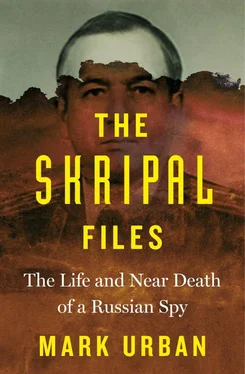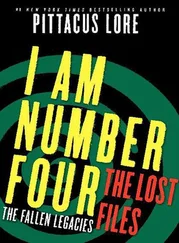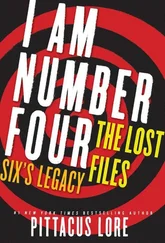We were discussing ‘heroic medicine’, using techniques or drugs untried before and possibly risky to the patient. Dr Murray said, ‘The sort of more heroic untested things were clearly key to the recovery of these individuals and exactly how much they contributed to the course we will probably never, ever know.’ That said, he argued, ‘The vast majority of the improvement and the success, if you like, of the clinical outcomes in these things, these individuals, were attributable to the very good generic basic critical care.’
It is clear that Porton Down did not as such have an antidote to Novichok, but it did have some ideas for novel ways to restart the production of the body’s ‘off switch’ enzyme. Perhaps we should give the casting vote in this medical debate to Dr Christine Blanshard, the medical director, with whom I had some discussion about the Skripals’ recovery. It was, she said, ‘simplistic’ to talk of an antidote, though some novel therapies were tried on the suggestion of Porton Down. As for their precise effect this was hard to say because, as Dr Blanshard pointed out, the time they might have been expected to take to resume normal production of acetylcholinesterase was very hard to predict.
‘It’s variable,’ she told me, ‘depending on the way the agent was administered or acquired, the dose of the agent, and there’s an individualistic response as well.’ Here she pointed to issues that were quite key to the patients’ survival and to the rejection of the ‘if it was really Novichok they’d be dead’ meme favoured by Vladimir Putin.
In going for an agent like A234, which would be absorbed through the skin, and in deciding a dosage that might do the job but not be so big as to cause huge contamination problems, the would-be assassins had to make a fine judgement. That being the case, the rapid help given to the Skripals that day in the Maltings and their swift passage into critical care had made the difference between death and survival. It would also be key to their recovery. The likelihood that Sergei and Yulia may have washed their hands between touching the door handle and falling ill – for example before eating lunch at Zizzi’s – may also have had an important effect in reducing the dosage.
So in the latter part of April, Sergei was improving rapidly, able to talk to detectives and to start moving about. Word reached us at the BBC that he had been seen walking gingerly up the corridors, in the company of a nurse, and later, as that long winter gave way to a warm spring, sunning himself in a garden near the main hospital block. He had some difficult psychological adjustments to make also, being initially reluctant to believe that he might be the target of a Russian government murder plot.
The poison had hit Sergei harder than either of the others, and his road to discharge was longer. He left Salisbury District Hospital nearly six weeks after his daughter. As April stretched into May, nursing sister Sarah Clark could see him becoming impatient. ‘I’m sure he would have wanted to have been discharged earlier, if he could have been,’ she told us, ‘but he recognized… that there were ongoing issues that needed to be addressed and he… was very dignified and accepted the advice that was given to him.’
During these weeks of waiting, Sergei remained on Radnor Ward, the intensive-care part of the hospital. By May, he was certainly well enough to be moved to another ward but it was simpler to keep him where he was, remaining under armed guard in a single room, and under the care of the same people who had treated him since 4 March.
Coming into his room from time to time Duncan Murray and Sergei would engage one another – each with their accented English – and the doctor couldn’t help thinking his way into his patient’s shoes:
I certainly found myself… very, very conscious of how I would’ve felt had I been in a similar situation where you’re in a foreign country, and, particularly as information starts to come into your possession that the circumstances by which you’ve arrived there are clearly way outside the normal. And for me that probably more than the immediate [medical] condition was what the future holds and where I might be going and how my life might look at that point. I found that very sobering, and really quite difficult to come to terms with… that’s a very vulnerable and isolated place to find yourself in.
At last, on 18 May, more than two months after the poisoning, discharge day arrived. The police helped Sergei gather up his things, he got dressed, and headed out of hospital to follow his daughter to the safe house. Dr Murray was not on duty that day, but he’d made sure to say goodbye to Sergei when he knew his departure was imminent, just as he had with Yulia. ‘We develop some sort of bond with all of our patients and there was something particular about these two that made that last meeting slightly more poignant,’ he felt. Where would they fetch up? How complete would their recovery be? Those basic questions were surrounded by more uncertainty than with any usual patient.
There had been suggestions from Downing Street, while the Skripals were in hospital, that they might well end up in America or another English-speaking country, and be given new identities. Neither of them, I hear, particularly liked this idea. But even if the arrangement of safe house and police protection could go on for months, a year even, it could not go on for ever, and the question of where they would live would re-emerge.
A few days after Sergei’s discharge, the Russian First Channel stepped up the pressure on him and Yulia. His mother Yelena, approaching her ninetieth birthday, was seen on camera tearfully pleading for him to call. A finger of blame, implicitly at least, was pointed at the British authorities. ‘Why don’t they allow him to phone, why, what is the reason?’ she implored. ‘After all when he was at home we used to talk every week, and now for some reason we are not allowed to talk.’
Viktoria also appeared in the segment, staging a one-woman demo outside the British Embassy in her quest for a visa. Yelena called on them to give her one, but the embassy refused once again. It was quite uneasy viewing.
More than that, knowing how important Yelena is to Sergei, I found this Russian TV piece disturbing. It was another turn of the screw in the information war, another ploy at the expense of the Skripal family. Viktoria had done a few appearances on the First Channel by this point and I presumed they were paying her. But for poor Yelena to be drafted in also must have made it so hard for Sergei.
And the question arises, why – at the time of writing at least – hasn’t he called his mother? The recording of Yulia’s previous call had clearly created distrust. The feeling among those looking after Sergei was apparently that a further call might be used to push him into saying things prejudicial to the investigation or to make political statements. There were two sides in the messaging battle, and in respect to Yelena one could see toughness on the British side also. Late in July, Yulia called Yaroslavl and spoke to Yelena, telling her what had been going on medically, and explaining that Sergei was not yet able to talk to her direct.
In their safe house Yulia and Sergei had access to TV, the internet, and a phone. They were in contact with some friends but even so it was a form of isolation. They could not simply head up to London to have dinner and see a movie.
There were many reasons why the police and intelligence people sought to keep it that way, even if ultimately they recognized the moment would come when the Skripals, particularly Yulia, might want to move on. There was still a sense of guilt in British officialdom that he had not been properly protected on 4 March, nobody wanted to be accused of that again; they didn’t want any trial jeopardized by public statements; while they were still recovering they didn’t want father and daughter doorstepped by the media; and lastly, if Sergei Skripal was to opt for long-term ‘witness-protection’-style security he would have to disappear, severing many contacts he had with his old life, maybe moving to another country.
Читать дальше












